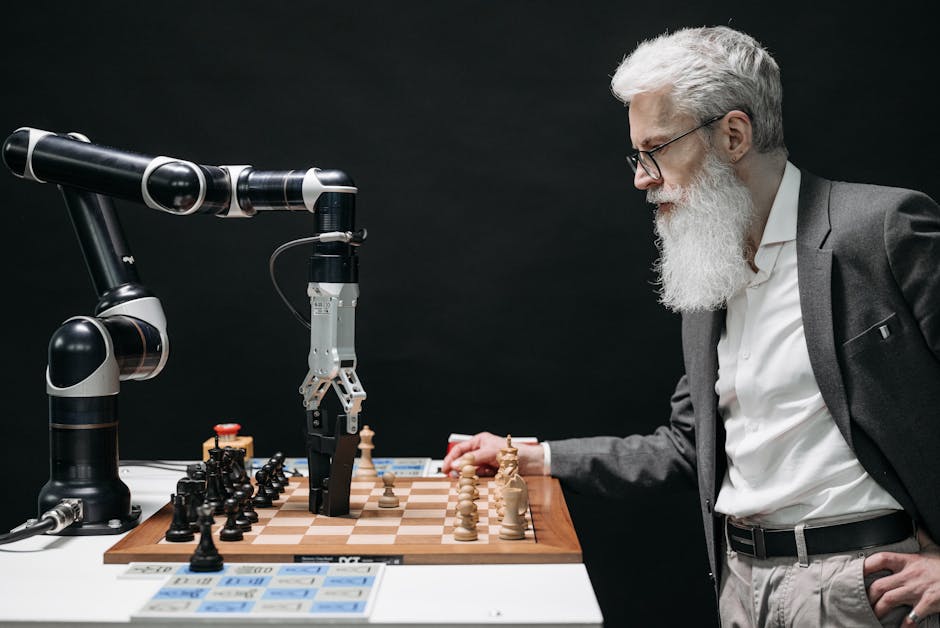
Introduction
In recent years, the entertainment industry has witnessed a significant transformation driven by technological advancements. Among these advancements, artificial intelligence (AI) stands out as a groundbreaking force reshaping various aspects of content creation, personalization, and viewer engagement. As we explore how AI in entertainment is revolutionizing these sectors, it becomes clear that the future of entertainment is not just about passive consumption but actively engaging audiences in innovative ways.
AI in Content Creation
Traditionally, content creation has been a labor-intensive process, relying heavily on human creativity and effort. However, with the emergence of AI technologies, this paradigm is being significantly altered. AI tools can analyze vast amounts of data to understand trends, preferences, and audience behaviors, allowing creators to develop content that resonates more deeply with their target demographics.
Automated Scriptwriting
One of the most intriguing applications of AI in entertainment is automated scriptwriting. Using natural language processing (NLP) algorithms, AI can generate scripts based on existing narratives, genres, or even specific themes. Companies like ScriptBook are utilizing AI algorithms to predict the success of scripts before they are produced. This not only reduces risks for studios but also opens up new avenues for creativity as writers can leverage AI-generated suggestions to enhance their scripts.
Intelligent Editing Software
AI-powered editing tools are streamlining the post-production phase, enabling creators to focus more on storytelling and less on the technical aspects of editing. Tools like Adobe Premiere Pro’s AI features assist with scene detection and automatic video tagging, significantly reducing editing time. This allows content creators to produce high-quality content at a faster pace, catering to the ever-increasing demand for fresh entertainment.
Personalization through AI
Gone are the days of one-size-fits-all entertainment. With the rise of streaming services like Netflix and Spotify, personalization has become a critical component of viewer satisfaction. AI algorithms analyze user behavior and preferences to tailor content recommendations, creating a uniquely curated experience for each viewer.
Behavioral Analytics
By examining data such as viewing patterns, search histories, and even social media interactions, AI can identify what types of content resonate most with individual users. This information enables streaming platforms to suggest shows, movies, or songs that users are likely to enjoy, enhancing their overall experience.
Dynamic Content Delivery
Furthermore, AI can optimize the timing and method of content delivery. For example, using AI-driven insights, platforms can determine the best times to release new content or offer targeted promotions, ensuring that audiences are engaged when they are most likely to watch. This level of personalization not only increases viewer satisfaction but also promotes customer loyalty.
Enhancing Viewer Engagement
Viewer engagement is a vital aspect of the entertainment industry, as maintaining audience interest can significantly impact a platform’s success. AI tools are developing innovative ways to foster engagement through interactive content and immersive experiences.
Interactive Content
AI is paving the way for interactive content that involves viewers in the storytelling process. Video games and interactive films, for example, allow users to make choices that impact the narrative while utilizing AI to adapt the storyline based on these decisions. This level of interaction creates a deeper emotional connection between the viewer and the content, resulting in a more memorable experience.
Virtual Reality and Augmented Reality
The integration of AI with virtual reality (VR) and augmented reality (AR) is taking viewer engagement to new heights. By creating immersive environments where users can explore and interact with content, AI is transforming traditional viewing into a multi-sensory experience. Applications such as VR concerts and AR-enhanced film viewings offer fans a chance to engage with their favorite artists and films in unprecedented ways.
The Future of AI in Entertainment
As the entertainment industry continues to evolve, the influence of AI will undoubtedly grow. From content creation to personalization and viewer engagement, the application of artificial intelligence is opening doors to innovative possibilities that were once unimaginable. However, as with any technological advancement, ethical considerations around the use of AI in entertainment must also be addressed.
Ethical Considerations
With the power of AI comes the responsibility to use it wisely. Issues such as data privacy, the potential for bias in AI algorithms, and the impact on employment within the creative industry must be taken seriously. Ensuring that AI serves to enhance the creative process rather than replace human ingenuity is paramount as we navigate this rapidly changing landscape.
Conclusion
The integration of artificial intelligence into the entertainment industry marks a pivotal moment in how content is created, personalized, and delivered. By harnessing the power of AI, creators can produce compelling narratives, engage users like never before, and cater to individual preferences effectively. As we move forward, balancing innovation with ethical responsibility will be key to ensuring that the revolution in entertainment through AI benefits creators and audiences alike.